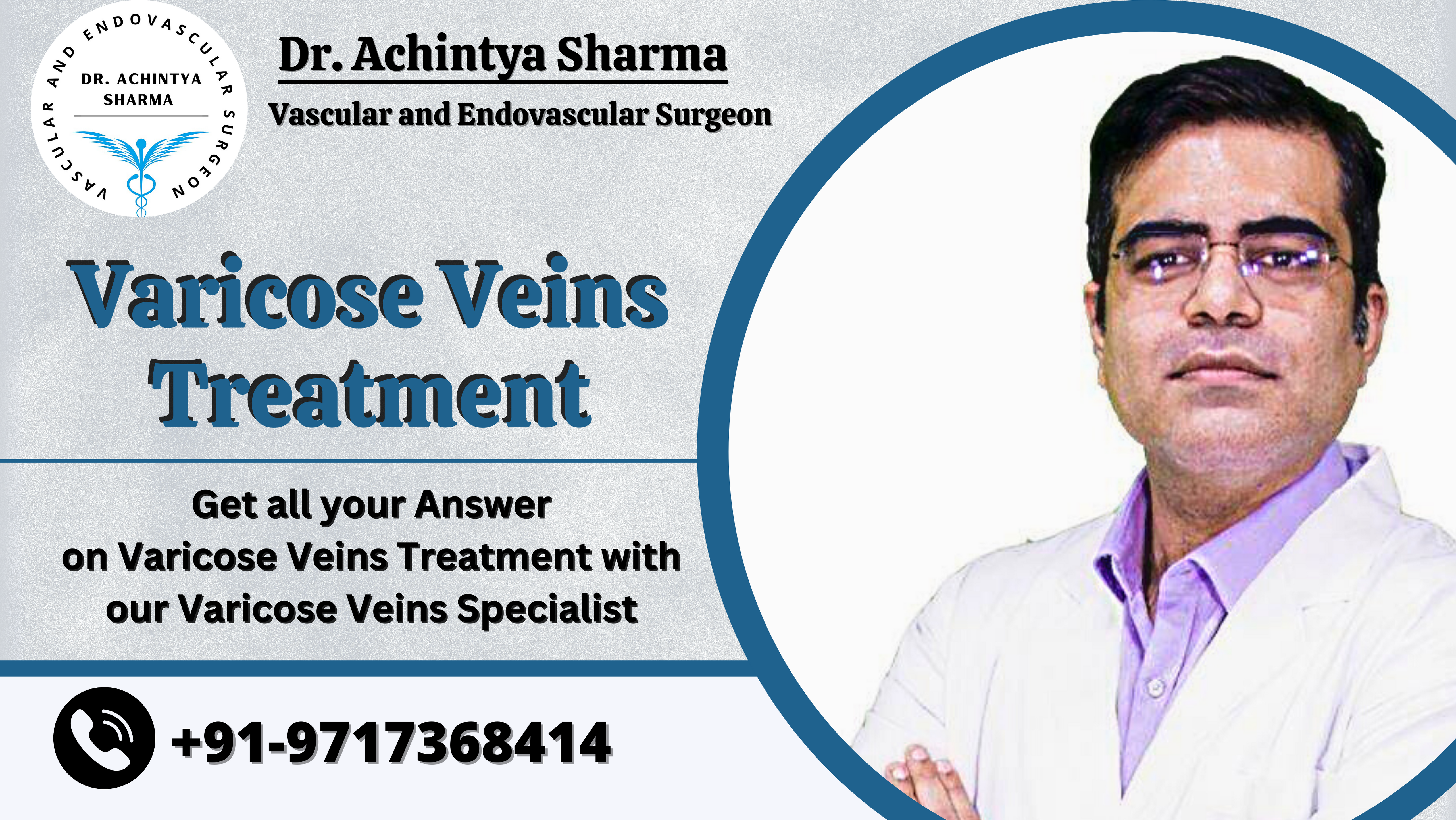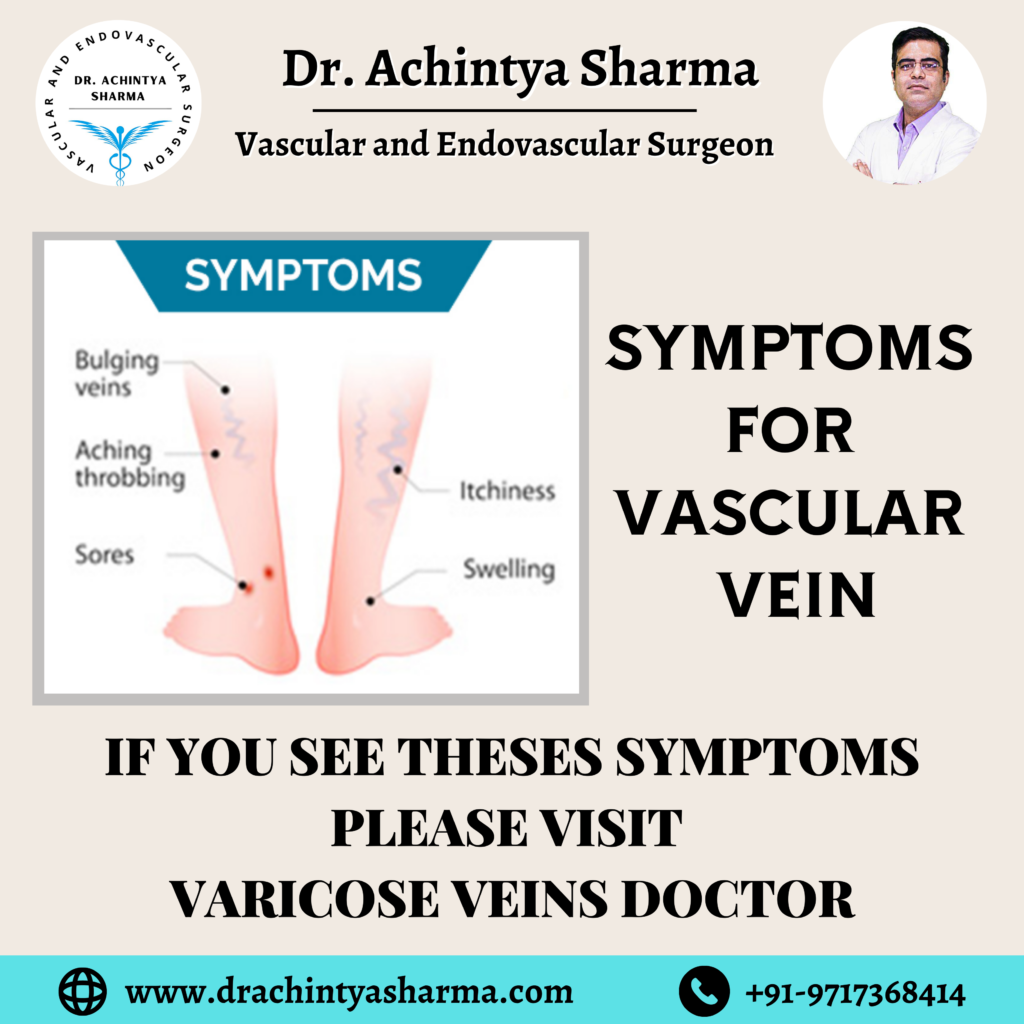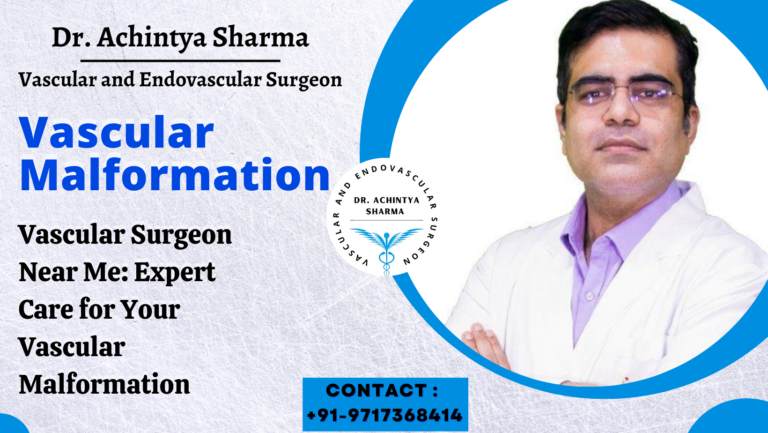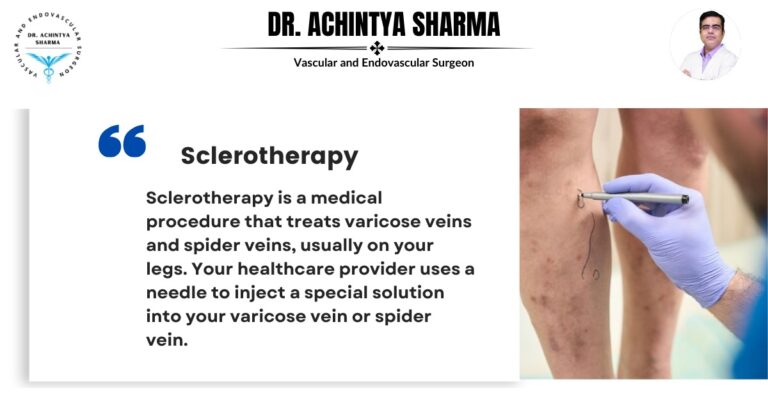We are going to tell you about varicose vein treatment. You’ve seen them before. Maybe you even have them. Varicose veins are those unsightly, often blue or purple, that snake their way up someone’s legs. While they’re more common in women, men can also get varicose veins. Varicose veins are a common condition that affects many people. The veins become enlarged and swollen due to a weakness in the valve system that helps blood flow back to the heart. Treatment options for varicose veins can include lifestyle changes, compression stockings, and procedures to close or remove the affected veins. It is important to seek medical attention if you have any concerns or symptoms related to varicose veins.
What Are Varicose Veins?
If you are not aware of this on a prior basis please contact a Varicose Veins Specialist Near Me. Varicose veins are those rope-like veins you sometimes see bulging out of someone’s skin.
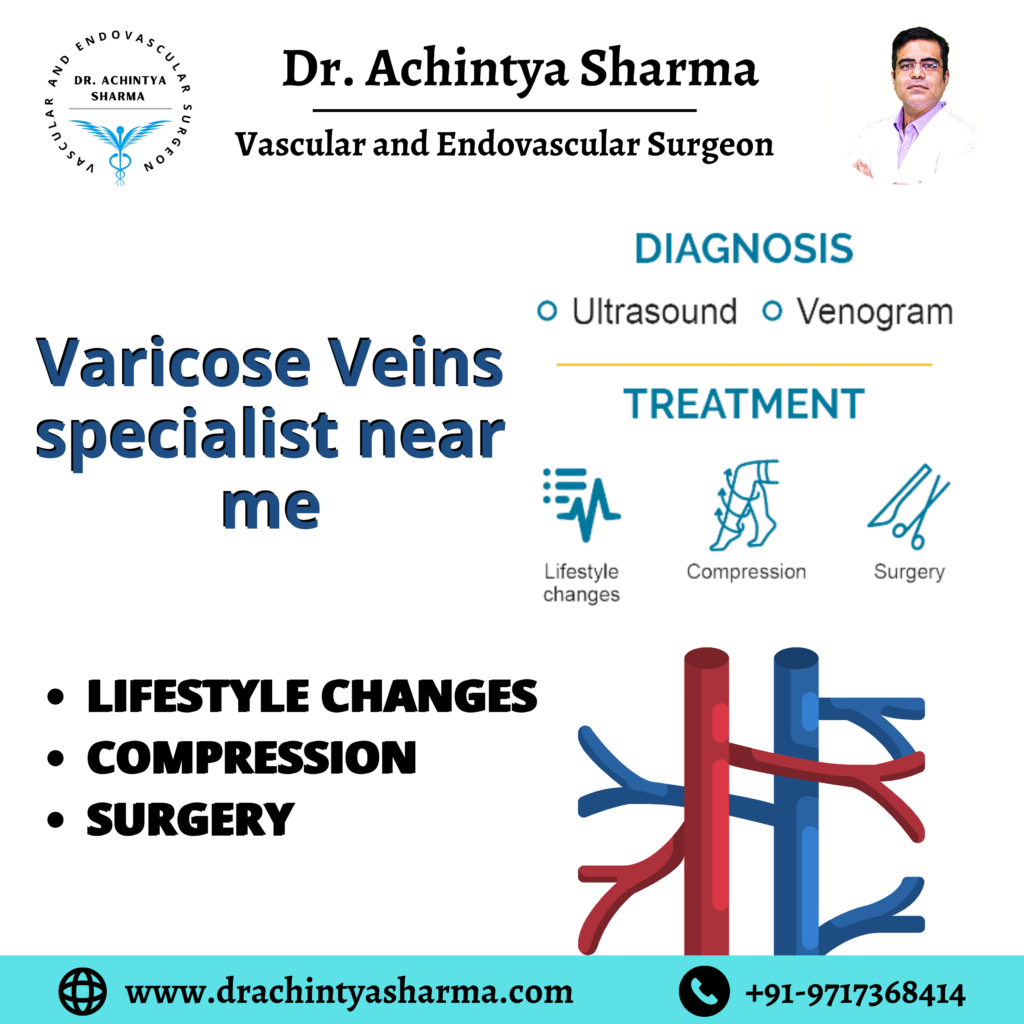
They usually occur in the legs but can also appear in other places. Varicose veins are swollen, twisted veins that you can see just under the surface of the skin. They usually occur in the legs and feet, but can also be found in other parts of the body. Varicose veins are caused by a weakness in the valve system that helps blood flow back to the heart. As a result, blood can collect in the veins, causing them to enlarge and become swollen. The symptoms of varicose veins can include aching or heavy legs, pain, itching, burning, and swelling. While they are not always serious health problems, they can be unsightly and uncomfortable.
Treatment options for varicose veins include lifestyle changes, compression stockings, and procedures to close or remove the affected veins. What causes them? Well, the veins in our bodies have one job: to carry blood from our extremities back to our hearts.
When these veins become weak or damaged, they can’t do their job correctly. This can cause blood to back up and pool in the vein, which makes it swell and become visible.
Symptoms of Varicose Veins
If you see these symptoms then contact the Varicose Veins Treatment on a prior basis. Varicose veins can be mild or severe but often produce some common symptoms.
Some people only experience cosmetic issues where the veins are large and unsightly. In other cases, the veins can cause pain and discomfort. The pain can be a chronic ache or come and go with the activity. You may also experience swelling in your leg, especially at the end of the day.
If you’re experiencing these symptoms, it’s essential to seek Varicose Vein Specialist. Untreated varicose veins can lead to serious physical issues.
What Causes Varicose Veins?
Varicose veins can be caused by several things, the most common being pregnancy, obesity, or a sedentary lifestyle. When the valves in our veins start to malfunction, pressure builds, and the vein walls stretch. This is what causes those unsightly and often painful bulging veins to form. Other causes can include age, genetics, a history of blood clots, and prolonged standing or sitting.
Diagnosis and Treatment of Varicose Veins
The diagnosis and treatment of varicose veins is a two-step process. First, your doctor will use ultrasound to determine the severity of your varicose veins. Once this has been established, they will recommend a course of Varicose Vein Treatment that is right for you.
Depending on your condition’s type and severity, several different treatment options are available. These can include sclerotherapy, a procedure that injects a solution into the vein to make it collapse; endovenous thermal ablation, which uses radiofrequency energy to seal off the vein; or ambulatory phlebectomy, which involves surgically removing the vein through small incisions in the skin.
The Different kinds of Treatments for Varicose Veins
When it comes to Varicose Vein Treatments, there exist different approaches you can take. The first is Endovenous Thermal Ablation (EVTA) when heat destroys the problematic veins. After that, there’s Radiofrequency Ablation (RFA), which uses radio waves to do the same thing.
Next up, foam sclerotherapy injections help close off the veins. This is an excellent option for those with smaller varicose veins, as it involves minimal downtime, and you can usually return to your daily activities when the session is over.
Finally, if you’re looking for something a bit more invasive, surgical ligation and stripping are always involved. This involves making small incisions down at the site of the varicose veins and stripping them away with metal instruments. While this method is less popular due to potential complications and longer recovery times, it may be necessary in some cases.
When there is a need to Consult a Doctor About Your Varicose Veins?
If you have varicose veins, firstly you go with Varicose Vein Doctor then it’s essential to know when to seek medical attention. While they may be unsightly, they’re usually harmless and can be managed with lifestyle changes and home remedies.
However, suppose you experience any pain, tenderness, swelling, or discoloration around the veins. If your veins worsen over time, if you experience skin ulcers, or if you’re dealing with a fever along with your varicose veins, it’s best to consult a doctor. You may need more advanced treatment, such as sclerotherapy or endovenous laser therapy.
You should also speak with your doctor if the varicose veins are affecting your quality of life or making it difficult for you to exercise or stand for long periods.
Remember that it’s always better to get yourself checked out by a professional than risk having these issues worsen. A doctor can assess your condition and inform you of the best courses for treating your varicose veins.
Conclusion
When it comes to varicose veins, getting an accurate diagnosis is essential. Several treatments are available, but the safest treatment for you will depend on the severity of your veins and other factors. If you’re considering treatment, consult a qualified Dr. Achintya Sharma varicose vein specialist. They can assist you in locating the most appropriate medical care.

